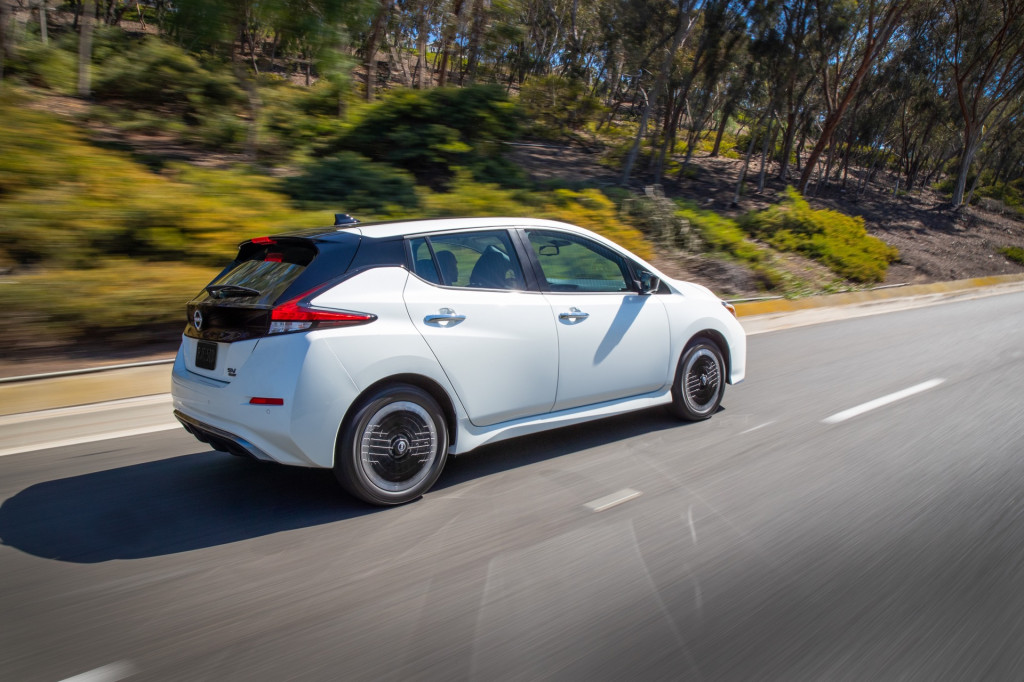Nissan is recalling 2018-2023 Leaf electric cars to address a potential issue that could cause vehicles to accelerate unintentionally after using cruise control.
The recall covers Leafs manufactured from September 29, 2017, to March 15, 2023, according to the National Highway Traffic Safety Administration (NHTSA). The recall population of 66,159 vehicles represents every Leaf built for the U.S. market during that time.
Faulty programming logic in the vehicle control modules of affected vehicles could cause an application of torque if the driver applies and releases the accelerator pedal within eight seconds of deactivating cruise control, adaptive cruise control, or ProPilot Assist (essentially adaptive cruise control plus automated lane centering), shifting from “D” to “B” or Eco mode, or activating the Leaf’s e-Pedal regenerative braking feature.
2023 Nissan Leaf
Nissan and the NHTSA appear to be saying that vehicles will keep accelerating until the brake pedal is applied, not that cruise control will remain active or reactivate—although the documents don’t clarify whether this would be light acceleration or much more. In either case, it’s very different from the Tesla unintended acceleration cases the NHTSA is investigating as these are potential environments when the car is already likely at highway speeds.
Nissan said the chance of this occurring in real-world conditions is “very low,” noting that the fault has only been observed on test tracks and in simulations. The automaker said it will implement a fix—the reprogramming of vehicle control modules in affected Leafs—”out of an abundance of caution.”
The Leaf, unlike many modern EVs, doesn’t offer over-the-air updates, so reprogramming will have to be done at dealerships. Other automakers have used over-the-air updates to help avoid that inconvenience for customers.

2023 Nissan Leaf
Lucid, for instance, even helped narrow the recall pool with a piece of software pushed to its vehicles. And Jaguar recently updated battery energy control module software over battery fire concerns. Tesla even uploaded new window-control software to cars to avoid the pinch of a physical recall.
Few large-scale recalls have applied to the Leaf, though. One of the most noteworthy is a brake issue in which the cars’ brake booster might freeze, requiring more pedal pressure.
